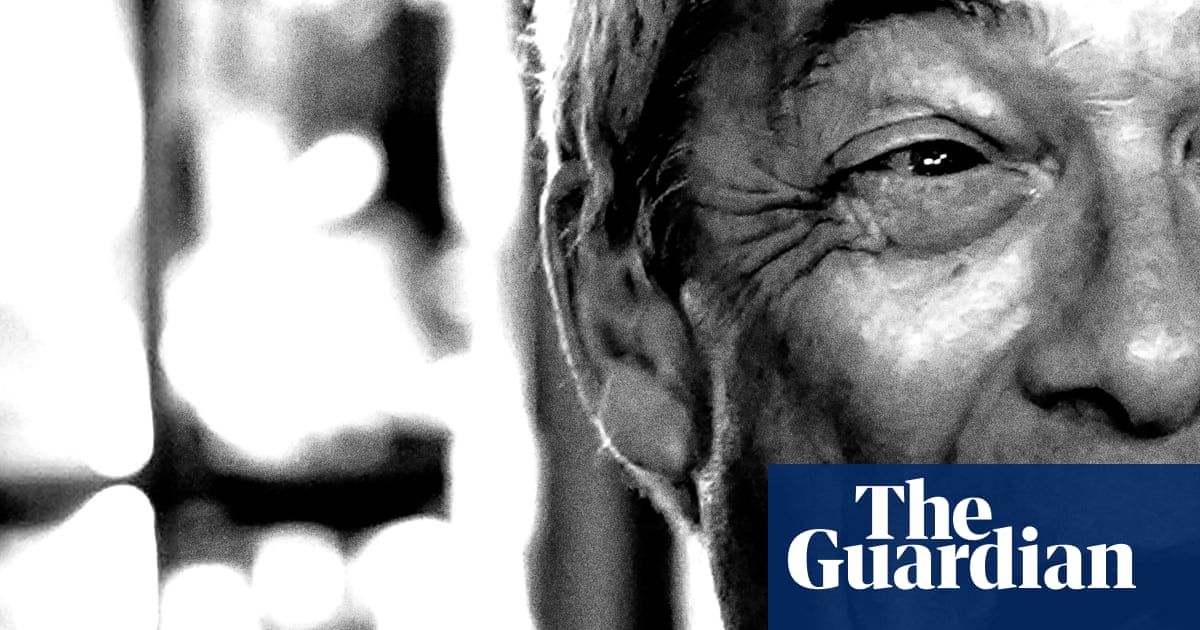Between 2021 and 2023, I spoke to 100 strangers about their jobs. I asked them, what do you do all day? Why do you do it? And do you like it? Their answers filled a book, Is This Working? It is a record of life and work in the listless British economy of the early 2020s, a “services economy” in which 85% of us, from the cam girl to the accountant, spent our days producing intangible products.
It’s a vague idea, the services economy, but it does at least capture the growing sameness of modern work. One theme in the book is the spread of administrative work. Time and again, my interviewees spoke of workdays being consumed by admin tasks that had little to do with the jobs they had signed up for. As the matron I interviewed put it, “Things you did routinely but never wrote down now take five pages [of forms] on a computer.”
Taken together, with their recurring tales of stress and of satisfaction, the interviews say something about the ways in which our work can at once diminish us and magnify us. But perhaps that is putting it too strongly. After all, it’s just people talking about their jobs.
The advertising copywriter
30s, male: “You don’t know when you’re going to have a great idea… Then boom!”
I’d heard of a uni course for advertising. I got in. As soon as I started ad school, I was like, this is who I’m supposed to be. These are my people. This is the kind of work I want to be doing.
In advertising, you work in pairs, a copywriter and an art director. I’ve been partnered up with my art director since ad school. I do the words, he does the pictures. It’s been great to have someone to work with. It’s like having a work spouse – the language you use, how you have to keep an open dialogue between the pair of you, always being honest. It can be delicate and tense, but rewarding.
They say that there’s a chucker-upper and a siever in any creative team. I think I’m the chucker-upper. Then he sieves, “That’s bullshit. That’s bullshit. That’s bullshit.” You don’t know when you’re going to have a great idea. It could be in the client brief when you’re fresh to it or it could be like, “I’m stressing. I’ve got nothing to show the client.” Then: boom.
To come up with ideas you have to learn how your brain works and be quite self-aware. Everyone’s different. My place is in the pool when I’m swimming. That’s the only place where my brain is truly quiet. And that’s when a lot of my ideas come. I love the freedom of being weightless and I think better in motion. I have a notebook that I take in my gym bag because of how often stuff comes to me. It isn’t always good, but some of it has been. In fact, some of the funniest ideas I’ve had, I’ve had underwater.
The sex worker and university student
20s, female: “Clients think they’re using me, but I’m the one that’s financially gaining”
Before I started working for OnlyFans and a nude modelling site I was having to rely on food banks at the local churches. My student maintenance loan only covers three-quarters of my rent.
On Tuesdays, I tend to have uni during the day, then from 7pm until 10pm I do the online modelling. On Wednesdays, Thursdays and Sundays I tend to focus on my uni work. On Fridays I’ll work the morning shift (5am to 9am) on the cam-site. This is quite busy. For some reason men want to log on and pay people before they go to work. Who knows why?
I have one client who’s into financial domination. Before our sessions he tells me what he earns, what his outgoings are and what his budget for the call is, so I know exactly what he’s got to spend. Part of my interaction with him is belittling him for not tipping me enough. If he sends me some money, I’ll say, “Come on, you can do better than that.” It’s the easiest call I do. The public perception of sex work is that it takes place in a dark alley, your stereotypical prostitute in a red-light district. Don’t get me wrong, there are still dark aspects to the industry with people being exploited, but there isn’t that darkness to my sort of sex work.
I want to work in the corporate world one day and when I talk to all these men who are all quite high up in companies it’s like I’m building connections in that world. You have to earn enough to pay for these sessions because each one costs about £2 a minute.
It’s been good for my confidence too. I’m on dating apps like any normal person is. If anyone gives me attitude on those apps, I think, screw you, people pay me for my sex work. My partners do struggle with it. I’m very upfront with them that I do sex work and I’m not going to stop. “Other men have seen your body. Blah, blah, blah.”
The clients think they’re using me, but in reality, I’m the one that’s financially gaining from the relationship. It’s using misogyny for my benefit, really.
The call centre worker
40s, female: “A caller threatened to kill himself because he couldn’t return a tool”
The first thing I do in the morning is to sign in as quickly as possible. If you’re a minute late, you’re marked as awol and you have to work back your time, or you have to go to your manager and say, “I was a minute late because the system didn’t work properly.” Then I get started on my calls. It’s call after call after call after call.
One day I took a call from a man who was raging because he couldn’t return a tool to a particular store. He had to return it to a different store. He was on the phone in his car and he threatened to kill himself. For 14 minutes I had to speak to this man while he travelled from one store to another, all the while threatening to kill himself and the woman he’d dealt with in the first store. I wrote everything down because I was scared for her safety.
I alerted my managers: they were feeding me things to say. He was so aggressive, I was afraid he was going to kill that woman, kill himself, or kill his family. I didn’t sleep that night because I was so worried he was going to go back to the shop and kill them all. I thought, I’m not equipped to deal with this.
But I also know how to calm down angry men. I’m good with my voice. I spoke softly, calmly… calm, calm, calm. When he’d got to this other store to get the refund – which was £40 by the way – I was still on the phone to him. I heard him speak to the woman behind the counter. I wasn’t sure what was going to happen. But he was so polite to her, “I just want to return this.” After I’d been screamed at, after he’d told me he was going to kill himself and his family and that it was all my fault, after all that for 14 minutes, he exchanged the tool and that was it. I’m shaking now just talking about it. It’s weird. People’s mental health takes a real hit doing this job.

The gardener
30s, female: “I have a purpose in the world, to help people, help the planet, and be outside”
When I was younger, my mum gave me one of those old Victorian basins so that I could have my own mini garden. I went to uni and forgot all about the outdoors.
I then went to work in marketing. The last company I worked for was not good to their workers. I ended up on mental health sick leave; they let me go the day I got back. I spent a few months trying to decide what I wanted to do. My parents said, “If you want to earn a few quid, come and do our garden.” Word spread and I became a gardener, and I love it.
There’s always the stress of what the weather is going to do, but on the other hand, you don’t have any targets, it’s not data-driven and you’re outside: the vitamin D helps with your mood; the soil, when you disrupt it, releases a bacteria that they’re now trialling as a medication for PTSD; and petrichor – the smell of rain after it’s been hot – signals that the fertile season is here and seems to produce a happy hormone in us. I don’t know anyone who doesn’t like that smell.
I have a purpose in this world. To help people, help the planet, and to be outside. When I garden, I try to teach people that things don’t need to look perfect.
The freelance chef
40s, male: “I’d say 85% of chefs are alcoholics, drug addicts or gamblers”
Most chefs are slightly off their head – I’d say 85% of chefs are either alcoholics, drug addicts, or have a gambling problem – but it’s always been fun in the kitchen. I’ve seen people crashing in and having fights, in the walk-in fridge, or outside. Head chefs would throw stuff at you or threaten to deep-fry your hand. That’s stopped a bit.
I lost one marriage because of it – the cheffing, the lifestyle, being tempted by younger waitresses. It’s not great if you’re trying to have a family. You’ll argue, you’ll bite, you’ll snap, you’ll annoy the other person. You’re not yourself, are you?
I’d like to start my own agency, but an agency run by chefs, not business people. I could get my mates involved. If I do a chef de partie job, I get £13 an hour, but the agency rents me out at £19 an hour. They make £6 an hour for doing nothing.
The matron
60s, female: “You get more than you give in this job, but I’ve cried in the changing room”
The first time I ever scrubbed up for a case on my own was in 1970. The surgeon was lovely. He said at the end of it, “I’ll give you 9 out of 10 for that.” I had to squeeze my head through the door.
You get more than you give in this job, but you have to learn how to leave things behind. There’s times when I’ve sat in the changing room at work and cried. For instance, when you scrub for a C-section and the baby’s dead, you don’t just feel it for the parents, you feel it for you.
I had three miscarriages, but I still worked in an operating theatre where they did terminations. I would never judge those patients. You have no right to unless you can live their lives.
There’s a small core of colleagues who’ve been with you a long time. You have a depth of understanding. We’ve lived through a lot of change, upheaval, White Papers from the government, changes of government, changes of management. If we ever get half an hour for lunch as a group, you’ll sit down around a big table and it’d be, “Do you remember when?” The younger ones sit there and say, “You did what!” It’s a nice thing, that shared history.
The executive assistant
50s, female: “My job is to make the CEO look like the most organised person in the room”
I’m working as a PA to the CEO of a private hospital. He’s very respectful and we’re very open with each other. I know exactly where he is, what he’s doing and what he wants. I can read him. He said to me once, “You know exactly what I need before I ask. Nobody has ever been able to do that before.” I have access to his diary, and everything is organised via me. I’m his eyes and ears, so I’ll go around getting feedback from the various teams and I’ll share that information with him without saying who said what.
He involves me in everything; it makes me feel alive. He’ll ask my opinion and often he’ll take my advice. Though he’ll never say in front of people, “My assistant suggested this.” Instead, he’ll just say, “So I’ve decided to do this,” and I’ll think, OK, he’s taken on board what I’ve said. It doesn’t bother me that he gets all the glory. I get paid well. I get overtime. I know he appreciates me. At staff forums, he’ll regularly say of me, “She’s the boss.” It makes me feel good. He needs me. It’s my job to make him look like the most organised person in the room. We trust each other. That’s the important thing.
The taxi driver
50s, male: “It’s like working in a bar. You hear conversations that you shouldn’t hear”
There aren’t many taxi drivers who actually have music on in the car. I find that strange. On Saturday nights my job is not like a job, because I’m actually out experiencing that Saturday nightlife as well. I’m listening to the radio with the tunes on. Life and work are intertwined. I’ll have Capital FM on and people are like, “Ah I could stay in here all night!”
The taxi trade is like working in a bar. You meet every kind of person from every kind of background with every kind of story. Some of them are funny. Some of them are bad. Imagine being a fly on the wall. You hear conversations that you shouldn’t hear. You see things that you shouldn’t have seen. It’s a rewarding job. It’s a job where everything’s live.

The former soldier turned primary teacher
30s, male: “The army promised a lot of things that never came. You’re just left”
When I was in Afghanistan I made friends with some of the Afghans – lovely people. Before you went out there, you got told “This is the enemy. They wear a towel on their head.” It sounds horrible, but that’s what we were told. When you’re there, you realise the Afghans are people who just want to get on with life. They’d bring us things like bread and watermelons.
One of the Afghan guys we trained even gave me a chicken. I’d been with him when we’d come under attack. He’d fallen into a river and got his belt caught on the riverbed. I pulled him out and he was really grateful. He said, “I want to give you this chicken. It’s a prize-fighting chicken. Make sure you look after it, or I’ll kill you.” He’d said the last bit in a joking way, but I couldn’t tell if he was joking about the prize-winning bit.
I got made redundant when David Cameron cut the army’s numbers. It was a week after I’d been put on a promotion course for lance corporal. The army promised us a lot of things that never came. You do the job. You get messed up by it. And then you’re just left. “That’s it. Your time’s up now.” You’re treated like a number, and I don’t think that’s a secret.
After I left the army, I had counselling, off my own back, and eventually went to work in an animal-feed factory and for a fast-food chain. I was really embarrassed, because it’s one of the threats they use in the army, “You can leave if you want, but you’re going to end up flipping burgers”, like it was the worst thing in the world.
When I was working in the restaurant, I did an access course at a local university, got a degree in English and then trained as a primary school teacher. I love it.
I’m not as resilient as I thought. I’ve probably cried in front of my headteacher more than anyone. Teaching is harder than soldiering, without a doubt. I mean, I’m getting grey hairs, my hair’s thinning. There were some tough times in the army, but I’ve never felt under more pressure and stress than as a teacher. It was far less stressful in Afghanistan. Get me back to being shot at!
The MOT tester
30s, female: “Imagine a Transit van above your head – I’m waiting to be flattened”
Even when I was 40 weeks pregnant, I was under the bonnet of a car, bump over the engine bay, putting cylinder heads back on. On my MOT tester training course, it was me and six other lads. I got 96% on the exam. I was pleased with that, because I’d left school with nothing.
The garage has grown since then. It’s busy. The work is exhausting. I’m up at 6am to get the kids ready for school. I get to work at around 9am. I’ll go through what we need to do that day. Then we’ll begin to do the MOTs. You do the pre-checks, then we go online and log the vehicle’s details. We print out the inspection sheet, put the car on the inspection ramp, and you start your test. Bonnet checks, interiors, seatbelts. It’s like hundreds of on-ramp points. Shaker plates. Turn plates. Steering. Suspension. Emissions tests. The older cars struggle to meet the emissions tests, so we have to get them stonking hot.
I suffer with anxiety – that inspection ramp does not help in the slightest. Can you imagine someone with a Class 7 Transit van above their head? I’m having to use the shakers. The whole ramp’s shaking above my head. I’m waiting for the ramp to flatten me into the concrete. I can’t get the fear out of my head.
The police officer
50s, female: “There are so many things you see in the job that never leave your brain”
There is one job that has always been in my head, even today. It came through on the radio: “You need to go to this address. We believe it to be an auto-erotic death.”
[Arriving at the address, the police officer went upstairs to the scene of the death.]
I went back downstairs. Going down the stairs, I saw pictures on the wall of him in a suit.
I went into the front room. I said, “I’m so sorry, ever so sorry. Is there anything I can do?” His wife said, “No.” She was distraught. She said, “You know what the worst thing is? I knew he did it.”
I went to another job, and I finished my shift at three o’clock in the morning. It’s dark. As I’m going towards the car, I stopped. Who’s in my seat? And all I could see was that man who’d hung himself. I could see him sat there. Of course he wasn’t there. But I could see him. I’ve got to go home. What am I going to do? I thought, just be brave and get in the car.
For about six months, I was doing that. Reliving. It was constant. Every night I’d see him. I started talking to him. I used to say to him, “How was your day?” And then after about three or four months I thought, “I can’t do this, I’ve got to let go.” There are so many things that you see in the job, and they just never leave your brain. It’s somewhere locked up.
[After a case involving sexual harassment by a senior police officer against a colleague was dropped, the interviewee asked why the case was not being pursued.]
The superintendent said, “We don’t arrest our own people, do we?” I said, “With all due respect, if we suspect that someone has committed a criminal offence, we do.” He looked at me, and got close. He was quite a big man. “We don’t shit on our own doorstep, do we?”
There is a lot of corruption in the service. People will say there is no corruption now. But I listen to the news, I see the papers, and I think, seriously? What do we, the police, learn? Nothing. We don’t learn because we don’t tell people what mistakes we’ve made.
The dairy farmer
60s, female: “I felt I had to prove to my dad that I could do the work of a man”
I’m a farmer’s daughter. Quite unusually for people nowadays, I’ve only ever moved 50 yards. Even when I was a little girl, I knew I was destined to be a farmer, and I feel that I have made a little bit of a mark for women in agriculture.
To start with, working on the farm stopped me getting married, because if I got married and had children, well, goodness, then I’m admitting that I’m a woman. I felt I had to prove to my dad that I was as good as a man, that I could do the work of a man, that I could run a farm. But I found a modern man and I carried on farming. My husband brought the children up. I couldn’t have done all of this without him. If he hadn’t looked after the girls, I wouldn’t have been able to farm in the same way. I was very lucky to find him. He was also lucky to find me.
Animal welfare is at the forefront of farming. Take poor old cows – we expect a lot from them. When I had my first daughter and was breastfeeding, producing milk was exhausting. I thought, my God, the cows should be in the field on their backs with their legs in the air, producing all this milk. I know it’s a bit sexist, but I do think women are good at looking after animals. We treat them as we would want to be treated.
This is an edited extract from Is This Working? The Jobs We Do Told by the People Who Do Them by Charlie Colenutt (Picador, £20). Buy a copy from guardianbookshop.com for £18
If you have been affected by any of these issues, call Samaritans on 116 123

.png) 2 months ago
22
2 months ago
22













































